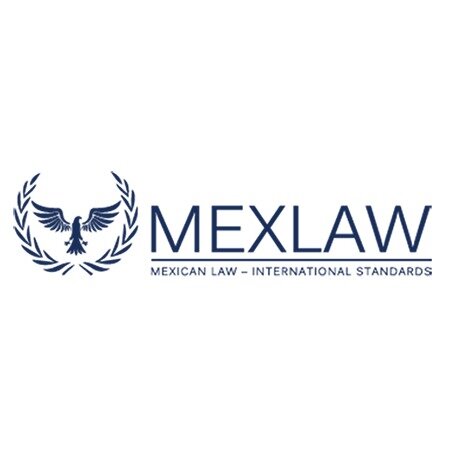Best Sanctions & Export Controls Lawyers in Mexico
Share your needs with us, get contacted by law firms.
Free. Takes 2 min.
Or refine your search by selecting a city:
List of the best lawyers in Mexico
About Sanctions & Export Controls Law in Mexico
Sanctions and export controls are legal measures that regulate or restrict the movement of goods, services, technology, or funds across Mexico’s borders. These regulations are typically established to comply with international agreements, protect national security, support foreign policy objectives, and ensure public safety. In Mexico, different government agencies enforce these measures to oversee trade activities, prevent illegal exports, and implement international sanctions. Whether you are engaging in international business, shipping goods overseas, or working with foreign entities, understanding sanctions and export control law is essential to remain compliant and avoid hefty penalties.
Why You May Need a Lawyer
Legal guidance is crucial in many situations involving sanctions and export controls in Mexico. Some common scenarios where legal assistance is needed include:
- Exporting controlled or sensitive goods and technologies from Mexico
- Doing business with entities or individuals who appear on international sanctions lists
- Responding to audits or investigations by Mexican regulatory authorities
- Facing allegations of violating sanctions or export control rules
- Applying for or renewing export licenses and permits
- Navigating the complex regulatory requirements relating to dual-use goods
- Structuring cross-border transactions to minimize legal risk
- Ensuring ongoing compliance for multinational operations
- Managing due diligence in mergers, acquisitions, or partnerships involving international trade
- Dealing with changes in global or national sanctions regimes
With an experienced lawyer, companies and individuals can better understand their obligations, develop compliance programs, and handle any disputes or regulatory challenges effectively.
Local Laws Overview
Mexico’s approach to sanctions and export controls is guided by a combination of domestic laws, regulations, and international commitments. The following are key aspects of the local legal framework:
- Foreign Trade Law: This law establishes the basic rules for import and export activities, delegate authority to enforce export controls, and prosecute violations.
- General Import and Export Taxes Law: Regulates duties and prohibits certain transactions based on the nature of the goods or their destination.
- Federal Law on Firearms and Explosives: Controls the export and import of arms, ammunition, and related materials.
- Regulations for International Transfers: Addresses export licensing for sensitive or dual-use technologies and compliance with international obligations.
- International Commitments: Mexico adheres to United Nations Security Council sanctions and works closely with the World Trade Organization and other international bodies.
- Authority and Enforcement: The Ministry of Economy, Mexican Customs (Servicio de Administración Tributaria - SAT), and the Ministry of Foreign Affairs are among the principal agencies overseeing licenses, permits, and compliance.
- Penalties and Enforcement: Violations of export controls or sanctions can result in severe consequences, including criminal prosecution, fines, revocation of licenses, or denial of export privileges.
Frequently Asked Questions
What are export controls in Mexico?
Export controls are government regulations that oversee and sometimes restrict the export of certain goods, technology, or information for national security, foreign policy, or economic reasons.
What types of goods are subject to export controls?
Common controlled items include military supplies, dual-use goods (civilian items that can have military applications), certain chemicals, encryption technology, and sensitive electronics.
Who enforces sanctions and export controls in Mexico?
Multiple agencies enforce sanctions and export controls, notably the Ministry of Economy, Mexican Customs (SAT), and, in cases involving weapons, the Ministry of National Defense.
Do I need a license to export goods from Mexico?
For certain goods, especially those that are listed under restricted or controlled categories, you are required to apply for and obtain an export license from the relevant authority before exportation.
What are the consequences of violating export control laws?
Violations can result in administrative, civil, or criminal penalties. This may include substantial fines, seizure of goods, loss of export privileges, or even imprisonment in the most serious cases.
Does Mexico implement international sanctions?
Yes, Mexico enforces United Nations Security Council sanctions as required by its international obligations and may also follow specific sanctions regimes established by other international organizations.
How can I know if my trading partner is on a sanctions list?
You should regularly consult government-issued and UN-published lists of sanctioned individuals and entities, and conduct due diligence checks as part of your compliance program.
Are services and technology transfers also controlled?
Yes, not only physical goods but also the transfer of technology, software, and certain services can be subject to regulation under export controls law.
What is a “dual-use” item?
Dual-use items are goods, software, or technology that can be used for both civilian and military applications. These are often subject to stricter controls and licensing requirements.
How often do export control laws and sanctions change?
Laws and regulations in this area may be updated frequently, especially in response to changes in international relations or security concerns. It is important to stay informed or consult a specialized lawyer to ensure ongoing compliance.
Additional Resources
If you require more information or assistance, the following resources and organizations can be very helpful:
- Ministry of Economy (Secretaría de Economía) - Responsible for export licensing and trade regulation
- Mexican Customs (Servicio de Administración Tributaria - SAT) - Enforces customs and trade compliance
- Ministry of National Defense (Secretaría de la Defensa Nacional) - Regulates military and dual-use goods
- Ministry of Foreign Affairs (Secretaría de Relaciones Exteriores) - Implements international sanctions and treaties
- Official Mexican Government Gazette (Diario Oficial de la Federación) - Publishes legal updates and official notices
- UN Security Council Sanctions Committees - Guidance on international sanctions obligations
- World Trade Organization (WTO) - Reference for international trade law and disputes
Next Steps
If you are involved in international trade, plan to export sensitive goods, or believe you may be subject to sanctions or export controls in Mexico, these are important steps you should take:
- Identify whether your products or transactions are subject to Mexican or international controls
- Consult with an experienced legal professional who specializes in sanctions and export controls
- Establish robust compliance procedures and regular training for your staff
- Monitor updates to regulations and international obligations that may impact your activities
- Maintain detailed records of your transactions and due diligence procedures
- Contact relevant government agencies for assistance with licensing or compliance queries
Legal advice tailored to your specific situation can help you avoid costly mistakes and ensure your operations remain compliant with all applicable laws and regulations in Mexico.
Lawzana helps you find the best lawyers and law firms in Mexico through a curated and pre-screened list of qualified legal professionals. Our platform offers rankings and detailed profiles of attorneys and law firms, allowing you to compare based on practice areas, including Sanctions & Export Controls, experience, and client feedback.
Each profile includes a description of the firm's areas of practice, client reviews, team members and partners, year of establishment, spoken languages, office locations, contact information, social media presence, and any published articles or resources. Most firms on our platform speak English and are experienced in both local and international legal matters.
Get a quote from top-rated law firms in Mexico — quickly, securely, and without unnecessary hassle.
Disclaimer:
The information provided on this page is for general informational purposes only and does not constitute legal advice. While we strive to ensure the accuracy and relevance of the content, legal information may change over time, and interpretations of the law can vary. You should always consult with a qualified legal professional for advice specific to your situation.
We disclaim all liability for actions taken or not taken based on the content of this page. If you believe any information is incorrect or outdated, please contact us, and we will review and update it where appropriate.
Browse sanctions & export controls law firms by city in Mexico
Refine your search by selecting a city.

















